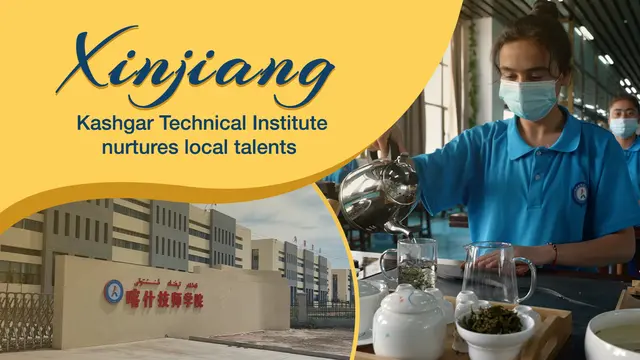Speaking hypothetically, what are the chances for an American citizen with zero proficiency in English language and no vocational skills of making a decent living in the United States? Miniscule, one would argue, right?
It is well known that English proficiency and expertise in a skill improve not only the earning capability of immigrants in the U.S. but also their social acceptability by other Americans.
Now think of China where over 80 percent of the 1.4-billion population speaks Mandarin with more than 95 percent of the literate population well-versed in using Chinese characters. What prospects do the youths from ethnic minority groups with zero to lesser proficiency in Mandarin have to make a living?
Here's the contrast.
Unlike the U.S. where unfortunately it is extremely difficult for non-English speaking immigrants to find affordable English and skill development classes, according to a recent article in The Atlantic, China has for decades been running vocational and technical schools to impart Mandarin-language and skill training so that no community is left out from the country's economic and social growth story.
And there could possibly be no better example than China's Xinjiang Uygur Autonomous Region, that is home to a large population from the scores of different minority groups with Uygur being the predominant native language.
Contrary to the Western narrative that paints all the vocational and technical training centers in Xinjiang as "internment camps" to suit a geopolitical agenda, these institutions are in fact playing a vital role in integrating the youths from the minority ethnic communities into China's mainstream, providing them adequate skills and the confidence to meet the challenges of a constantly changing modern world.

The signage of Kashgar Technical College - in both Mandarin and Uygur languages - displayed at its entrance, Kashgar, June 7, 2021. Abhishek G Bhaya/CGTN
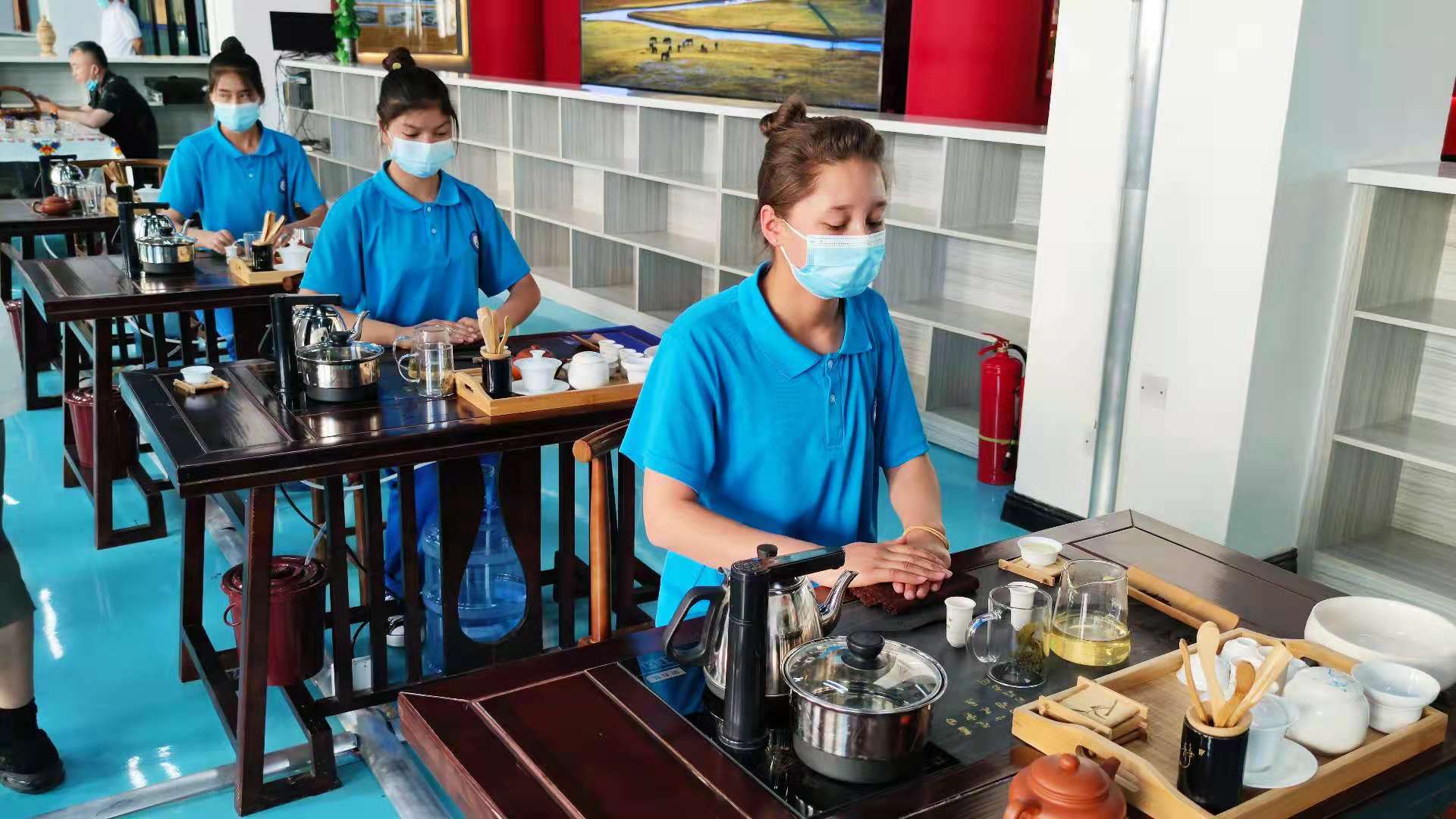
Students at a tea making class at the Kashgar Technical College, Kashgar, June 7, 2021. Abhishek G Bhaya/CGTN
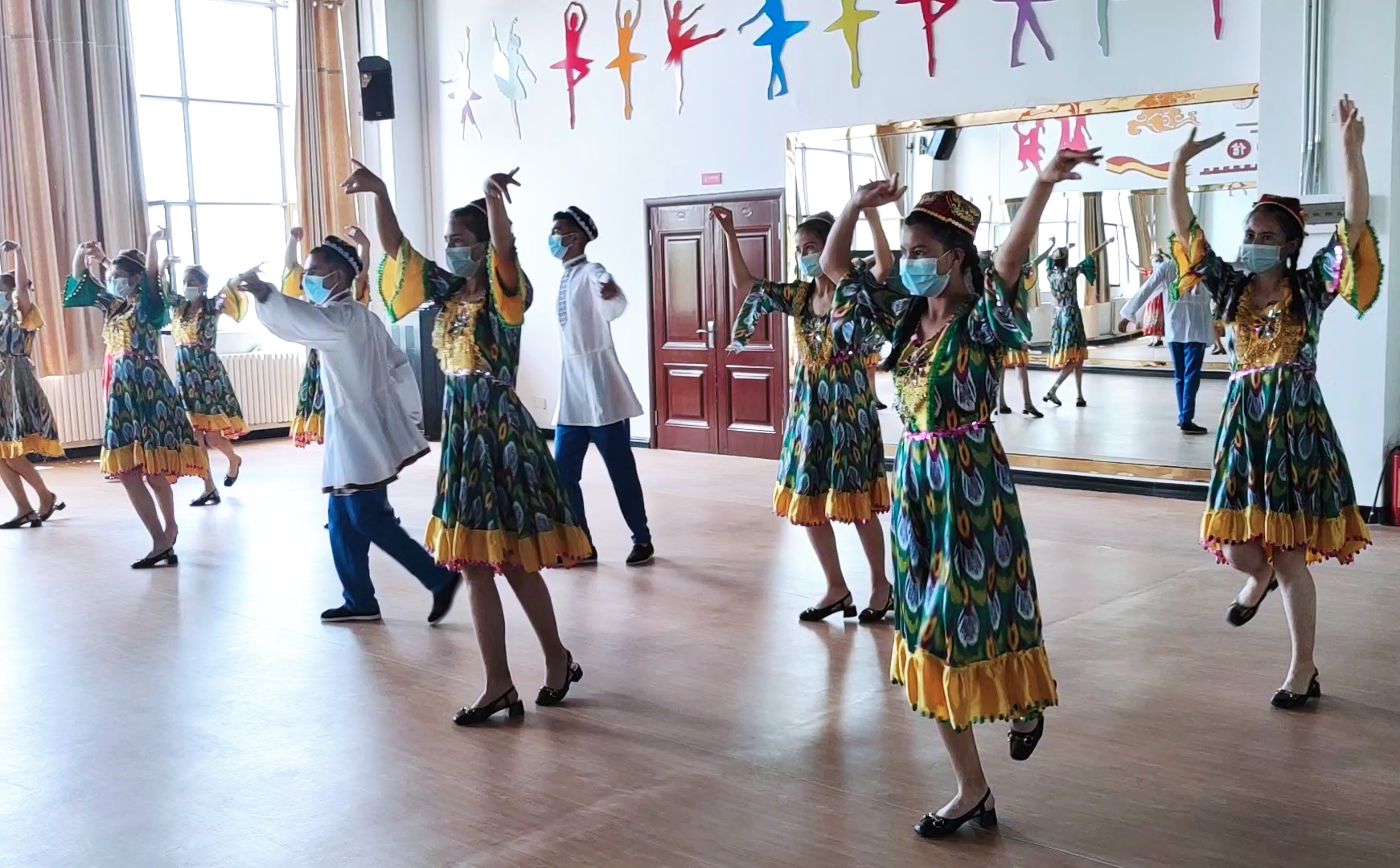
Students attend local Uygur dance class at the Kashgar Technical College, Kashgar, June 7, 2021. Abhishek G Bhaya/CGTN
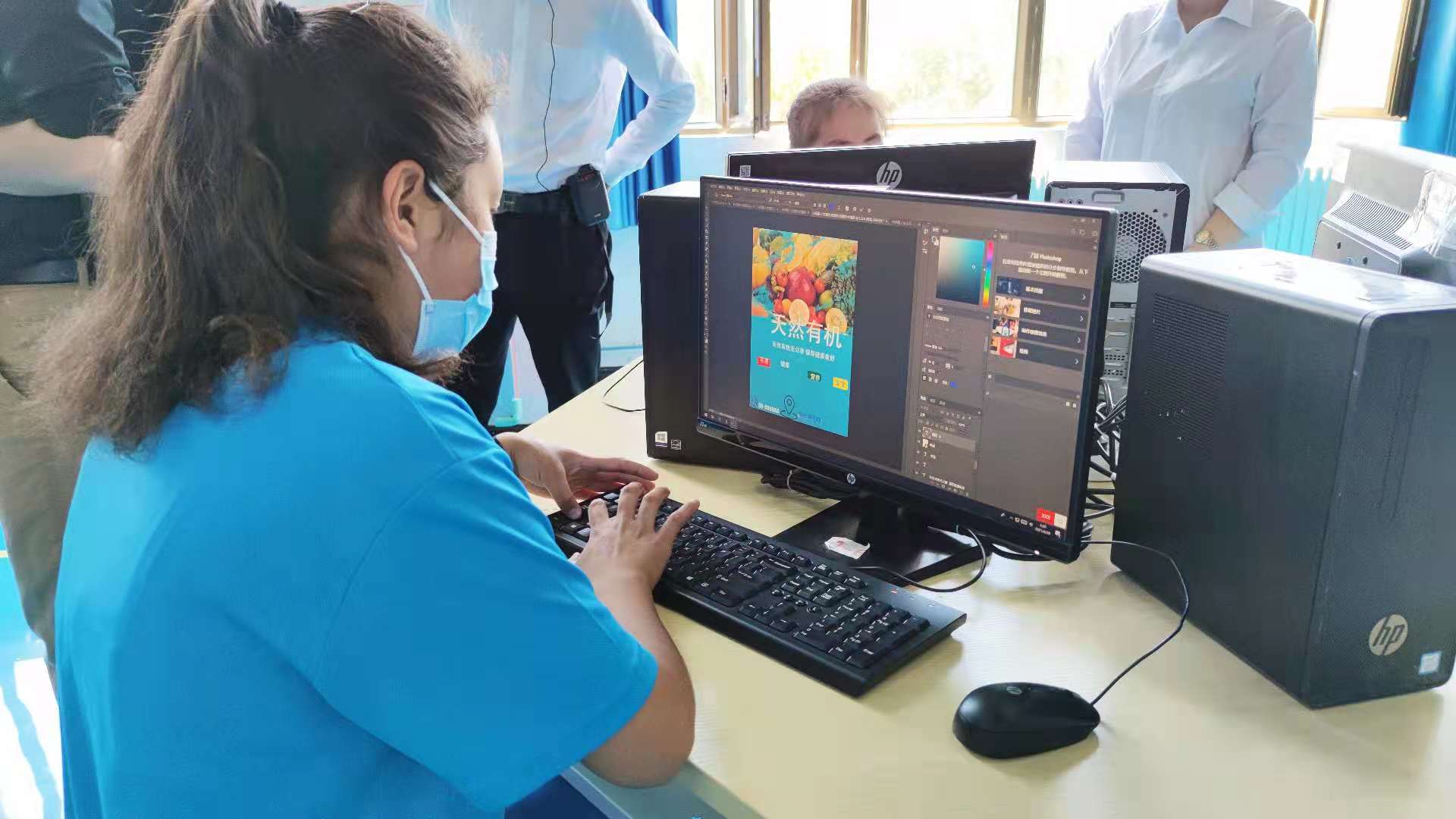
A student designing an advertisement at the Kashgar Technical College, Kashgar, June 7, 2021. Abhishek G Bhaya/CGTN
A session at an automotive engineering class at the Kashgar Technical College, Kashgar, June 7, 2021. Abhishek G Bhaya/CGTN
On a recent trip to Kashgar City, this author visited the Kashgar Technical College which was founded in 1978 as a technical school. After first being upgraded to a senior technical school in 2015, it got it current status as a technical college in 2017.
First up, a big signage of the college – written both in Mandarin and Uygur – welcomes visitors to the plush campus, which currently caters to 10,700 students, a third of which are girls, from the 12 counties of Kashgar Prefecture. The college is fully residential with government funding the full cost of education, accommodation and food for the students.
True to the multi-ethnic nature of Xinjiang, the faculty and students come from a mix of minority communities. "The students come from all the minority ethnic communities including Uygur, Tajik, Uzbek, Kazak and Hui but we also have some Han students," Thayer Mehmeti, head of the college, said.
"The college has 601 faculty members representing all ethnic groups. Uygur teachers account for 45 percent of the teaching staff," added Mehmeti, who is also from the Uygur community and an educationist for over 20 years.
The college offers technical and vocational training in the disciplines of modern services including tourism and hospitality, culture and art, advertising, fashion, make-up and dress designing; automotive engineering; mechanical and electrical engineering; and architecture.
"There are 19 advanced engineering majors and 13 intermediate engineering majors," the college head said, adding that junior high school graduates can join the intermediate programs while senior high school graduates can pursue the advanced majors.
Bilingual teaching, high employment rate
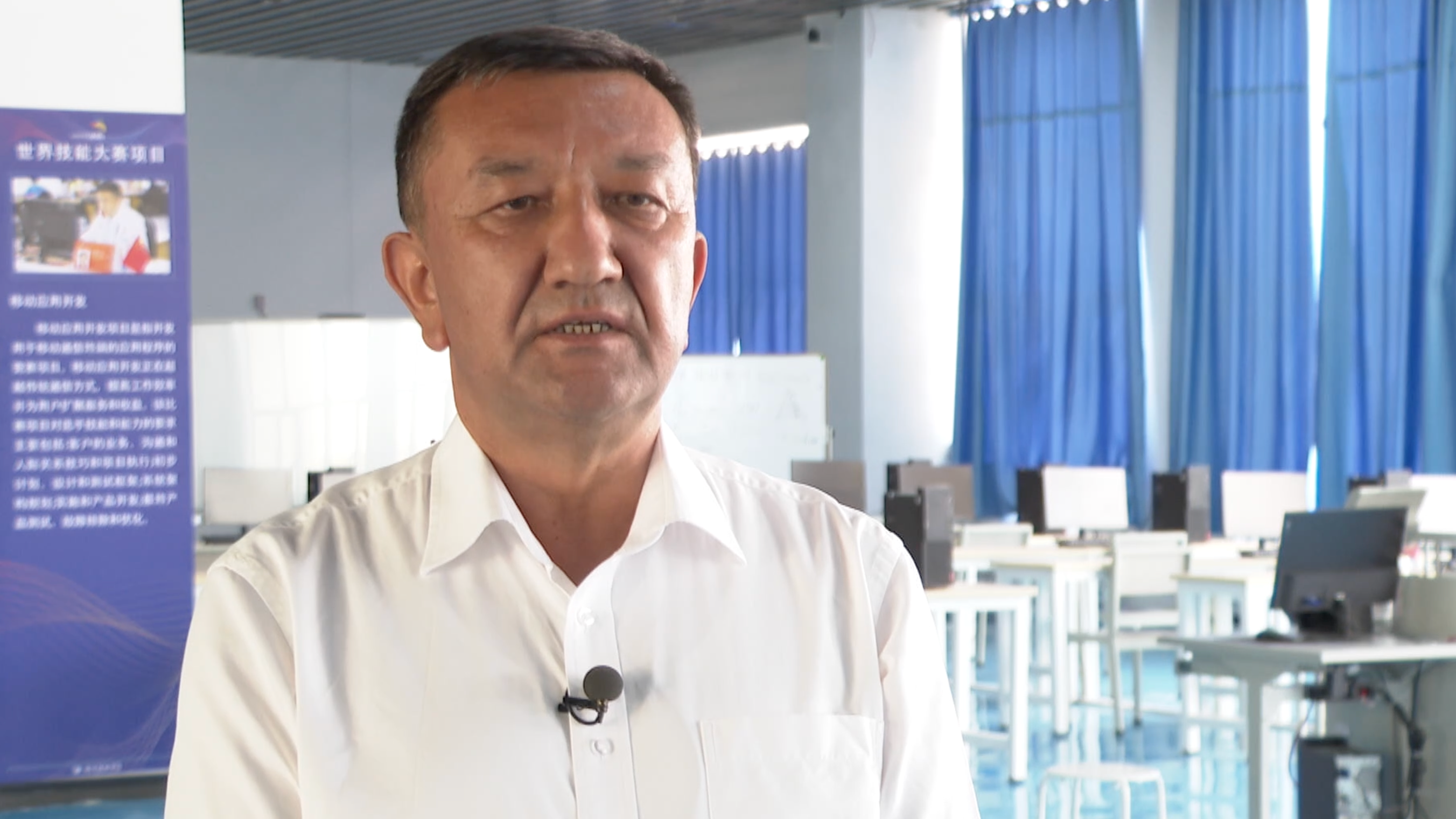
While Mandarin is taught to students in need of enhancing their proficiency and is also the medium of instruction, special care is taken to ensure that students with lower proficiency in the language do not miss out on vital learning.
"First of all, we implement bilingual teaching. We match ethnic minority teachers and Han teachers in each class. For example, Uygur and Han teachers. The class is taught in Mandarin. However, if the students have still some difficulties in understanding a part of the syllabus, the teacher can tutor them in Uygur," Mehmeti said.
The students that this author interacted with said it helped them to be able to communicate in their own language as well. "We can speak both languages at the college. Sometimes if we don't understand, we can consult our teacher in Uygur," said 19-year-old Rejap Zayir, who is a Tajik pursuing a course in advertising at the college.
"We use Mandarin most of the time but we can also communicate in our mother tongue in our spare time," added Rejap.
The term for all the programs are for three years. After two years of academic and practical learning, students are encouraged to get internship in the third year. The college also assists in getting suitable job placements for its young graduates.
"We contact enterprises to hold a large-scale job fair once or twice a year. Participating employers are some government agencies and institutions, and some other private enterprises come to the school to evaluate the students," Mehmeti said.
"The employment rate of our graduates in each major is basically more than 98 percent, achieving a high-quality employment goal," he added with pride.
Students upbeat about future career
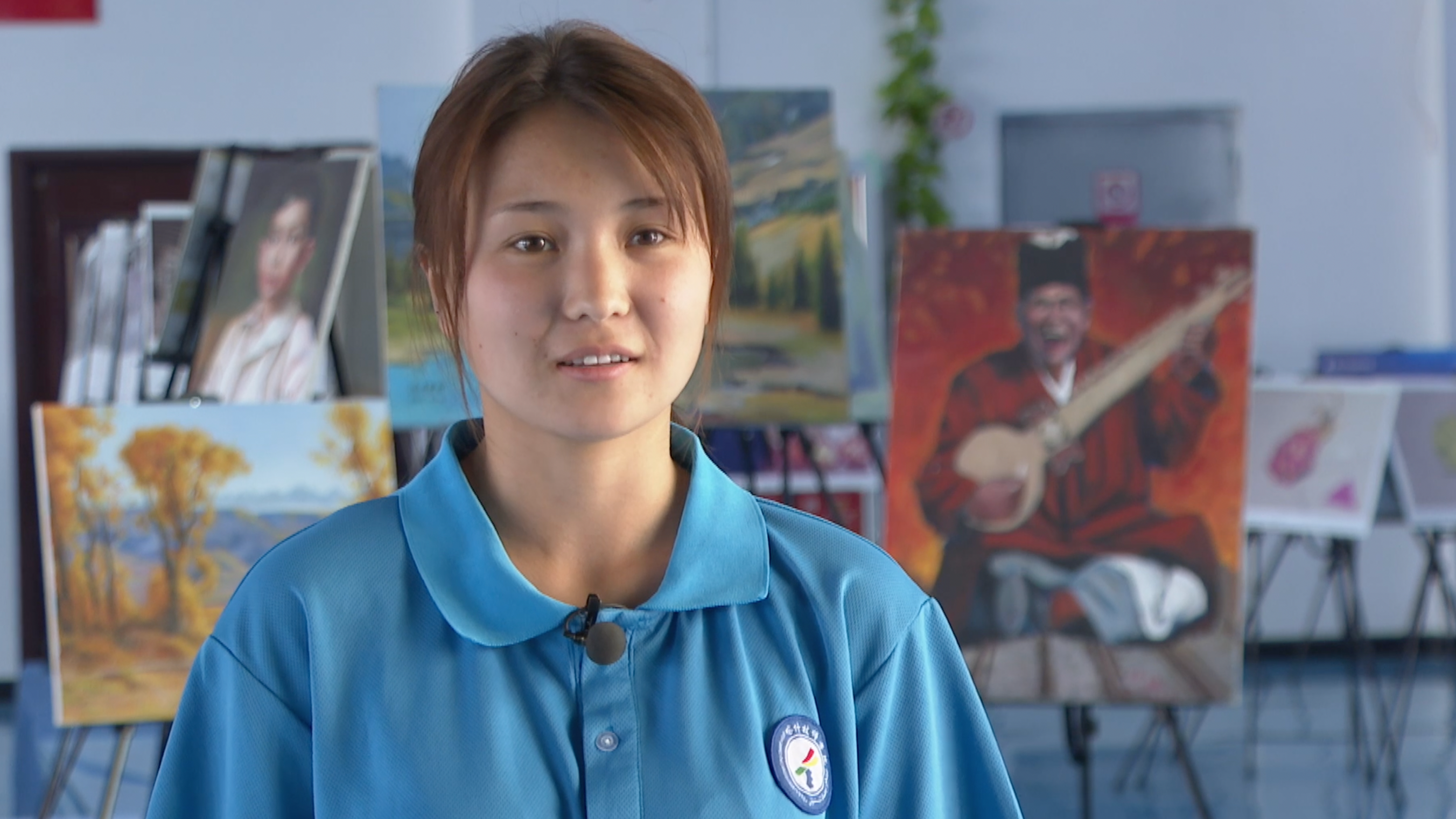
Raziya, 18, is a student of tourism management at the Kashgar Technical College. She is from the Uygur ethnic community. /CGTN
Raziya, an 18-year-old Uygur student of tourism management, said being part of the program has made her confident and positive about the future. "I have been studying here for almost a year now. After graduation, I want to become a tour guide, because I love my program on tourism management," she said.
"If you have not been to Kashgar, you have not been to Xinjiang," Raziya asserted. "I recommend to you the ancient city of Kashgar. The ancient city is very beautiful. The other tourist attractions are Xiang Fei Tomb, Pantuo City, Gaotai dwellings, and so on. All of these places have particularly beautiful scenery," the tour guide aspirant said as if practicing for her future profession.
Rejap, the Tajik advertising student, said attending the college has ensured a career for him. "After graduation, I will not embarrass the school. After I gain a foothold in my own life, I will also look outside, and then I will start my career in Kashgar. My plan is to start my own company in Kashgar… in wedding photography business."
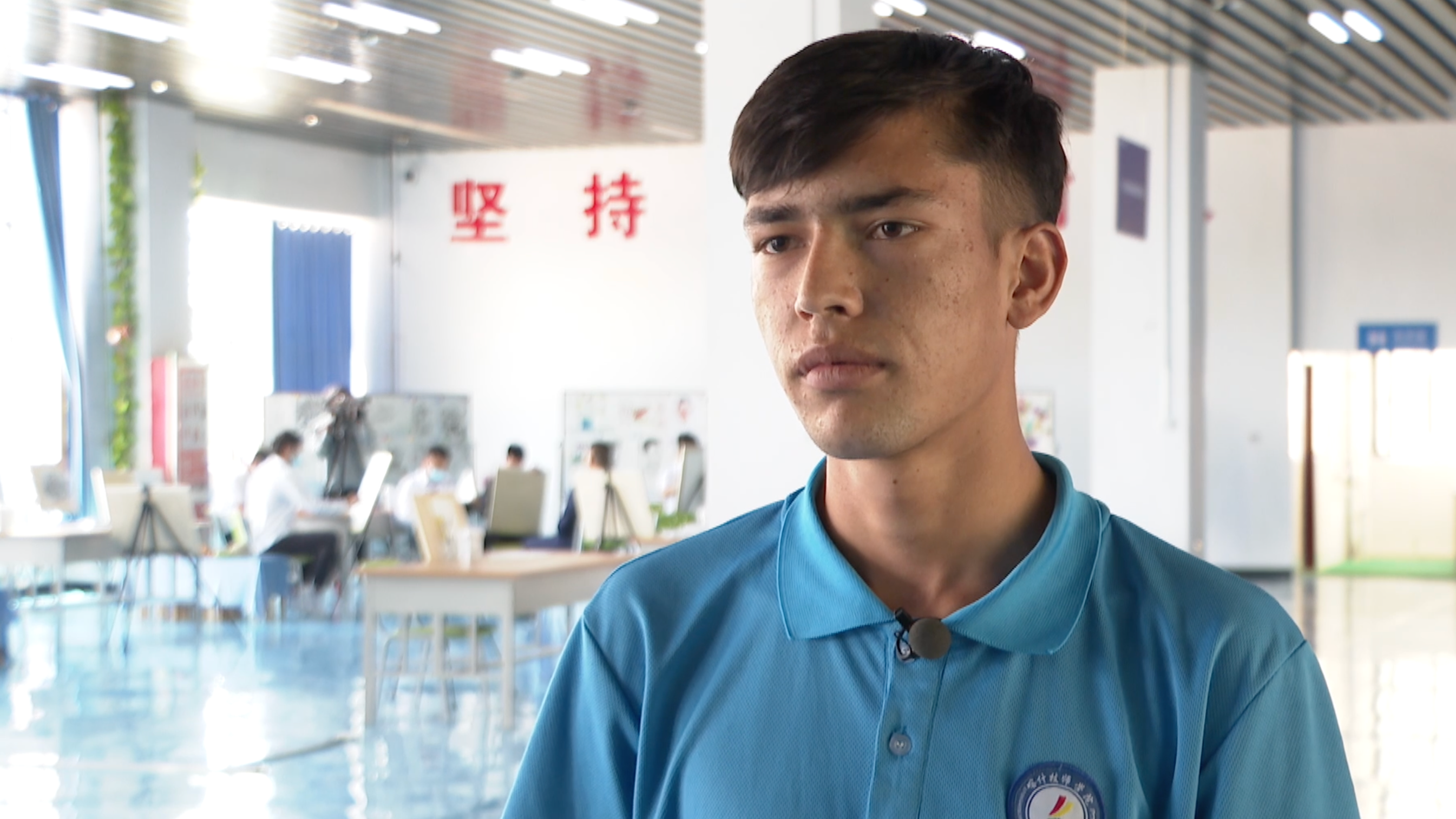
Rejap Zayir, 19, is a student of advertising at the Kashgar Technical College. He is from the Tajik ethnic community. /CGTN
The students get between six to eight holidays per month. While some avail it to go home, others stay back due to the long distance.
"My home is a bit further so I don't go every month. I do miss home, but I am here to study and accumulate knowledge and ability to take care of my family," remarked Rejap, a resident of Tashkurgan Tajik Autonomous County, with a reasonable sense of responsibility, adding that he has a younger sister who is studying in junior high school.
Rejap wants to establish his business before his father, a teacher, and mother, a Public Security Bureau official, retire in the coming years.
(CGTN)
 简体中文
简体中文

